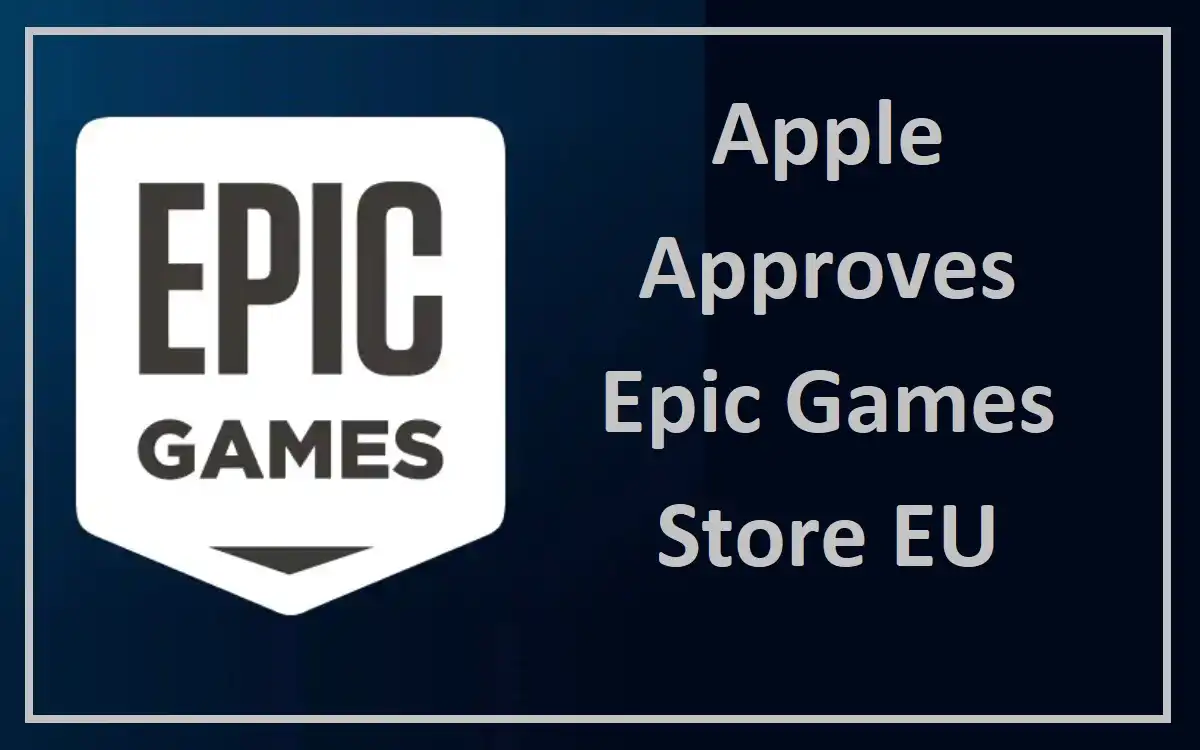Introduction
The digital marketplace is witnessing a significant shift as Apple approves the launch of the Epic Games Store on iOS devices in Europe. This development marks a pivotal moment in the ongoing saga between two tech giants, Apple and Epic Games, and potentially reshapes the landscape of app distribution in the European Union (EU). This article examine into the details of this approval, the challenges faced, and the broader implications for the tech industry.
Recent Released: Will Apple Intelligence iPhone 15 Releases This Year?
The Road to Approval
Initial Rejections
Apple initially rejected Epic’s app submissions twice, citing design similarities with the App Store. These included:
- Placement of the “Install” button
- Positioning of “in-app purchase” labels
Epic’s Response
Epic Games viewed these rejections as:
- Arbitrary
- Obstructive
- Potentially in breach of the Digital Markets Act (DMA)
Final Approval After negotiations and modification
Apple finally approved the Epic Games Store for launch in the EU.
The Digital Markets Act: A Game Changer
Apple as a “Gatekeeper” Under EU regulation
Apple is classified as a “gatekeeper,” which comes with specific obligations.
Key DMA Mandates
- Allow third-party app stores on iPhones
- Promote fair competition in digital markets
- Ensure user choice and market contestability
Impact on App Store Monopoly
The DMA challenges Apple’s longstanding monopoly over app distribution on iOS devices in the EU.
Ongo Concerns and Future Updates
Apple’s Stance
Apple has stated that the Epic Games Store will need future updates, including:
- Unspecified changes to meet evolving requirements
- Potential modifications to align with Apple’s guidelines
Epic’s Pushback Tim Sweeney
Epic Games founder, has expressed intentions to:
- “Fight” against Apple’s requested changes
- Maintain the store’s standard functionality and ease of use
Balance Act
This situation highlights the delicate balance between:
- Regulatory compliance
- Platform control
- Developer autonomy
Historical Context: The Epic vs. Apple Saga
2020 Antitrust Accusations
Epic Games accused Apple of violating antitrust regulations by:
- Imposing fees on in-app transactions
- Maintaining a monopoly over iOS app distribution
Legal Battles The dispute led to:
- Multiple court cases
- Removal of Fortnite from the App Store
- Heightened scrutiny of app store policies globally
Industry-wide Implications The ongoing conflict has:
- Sparked debates about fair competition in digital marketplaces
- Influenced regulatory discussions worldwide
- Encouraged other developers to challenge app store policies
The Future of App Distribution in the EU
Potential for Market Diversification
- Increased competition among app stores
- More choices for consumers
- Potential for innovative distribution models
Challenges for Platform Holders
- Maintaining security and user trust
- Adapting business models
- Navigating complex regulatory landscapes
Opportunities for Developers
- Access to new distribution channels
- Potential for reduced fees
- Greater control over app monetization
Table: Comparison of App Store Policies (Pre and Post DMA)
| Aspect | Pre-DMA (Apple App Store) | Post-DMA (Including Epic Games Store) |
| Third-party app stores | Not allowed | Allowed |
| In-app purchase system | Apple’s system mandatory | Alternative systems possible |
| Developer fees | Up to 30% | Potentially lower, varies by store |
| App review process | Centralized (Apple) | Varies by store |
| Payment processing | Limited to Apple’s system | Multiple options available |
| User data access | Restricted | Potentially more open |
| Cross-platform integration | Limited | Potentially easier |
Conclusion
The approval of the Epic Games Store on iOS devices in the EU represents a significant milestone in the evolving landscape of digital marketplaces. While it marks a victory for Epic Games and potentially for consumers seeking more choices, it also highlights the ongoing challenges in balancing platform control, developer freedom, and regulatory compliance.
As this new chapter unfolds, it will be crucial to monitor how these changes impact the app ecosystem, user experience, and the broader tech industry. The introduction of alternative app stores in the EU could serve as a testbed for similar changes in other regions, potentially reshaping the global app distribution landscape.
The Epic Games Store’s entry into the iOS ecosystem in Europe is not just about one company’s victory, but a harbinger of a new era in digital distribution. It challenges long-held norms and opens up possibilities for innovation, competition, and user choice. As the industry adapts to these changes, we can expect to see ripple effects that could benefit developers, consumers, and the overall health of the digital marketplace.
However, this development also raises important questions about platform security, user trust, and the long-term sustainability of different app store models. As we move forward, it will be essential for all stakeholders – platform holders, developers, regulators, and users – to work together to create a digital ecosystem that is fair, innovative, and secure.
The approval of the Epic Games Store on iOS in the EU is not the end of the story, but rather the beginning of a new chapter in the ongoing narrative of digital distribution and platform economics. As this story continues to unfold, it will undoubtedly shape the future of how we access, use, and interact with mobile applications and digital content.


